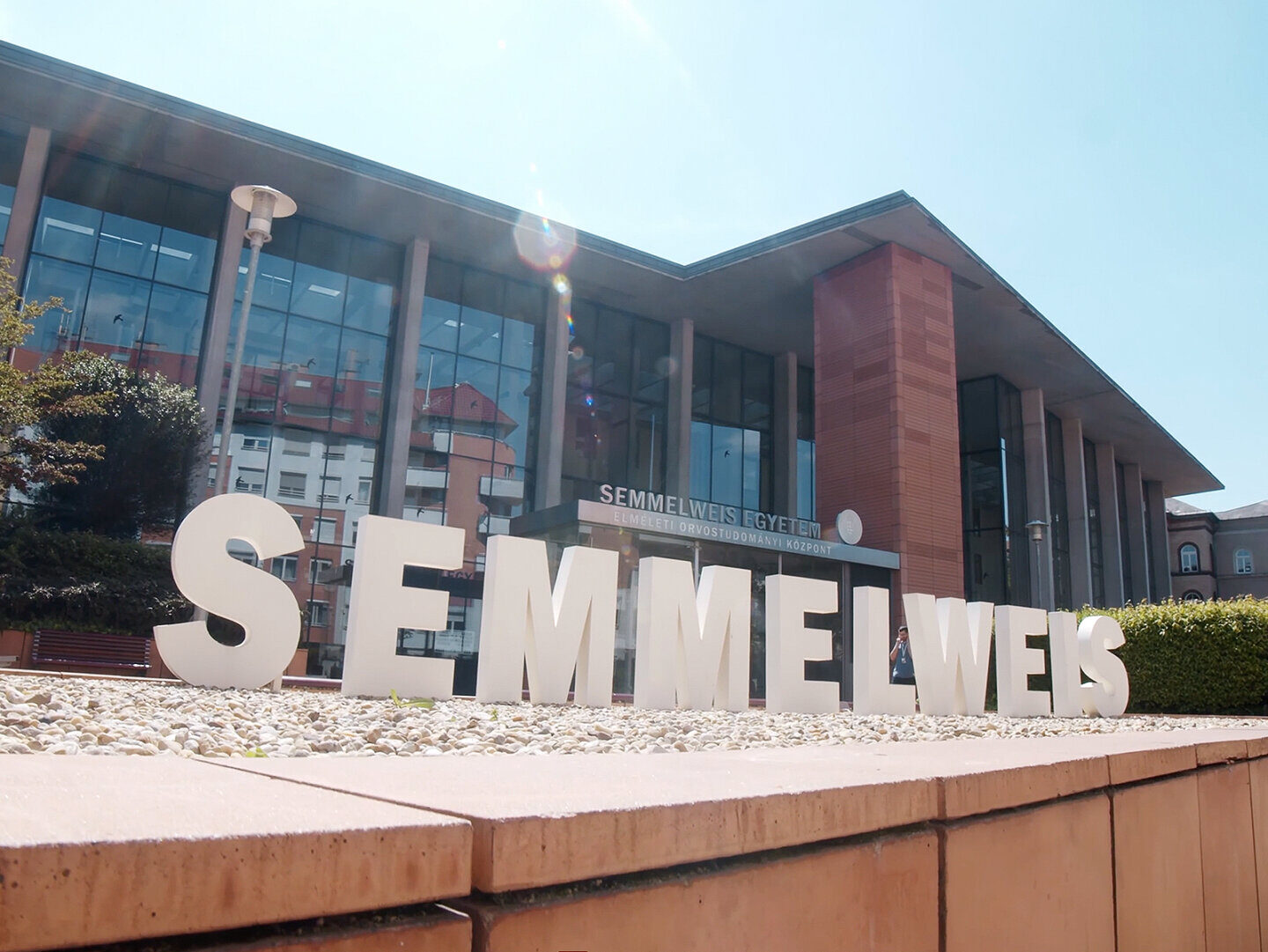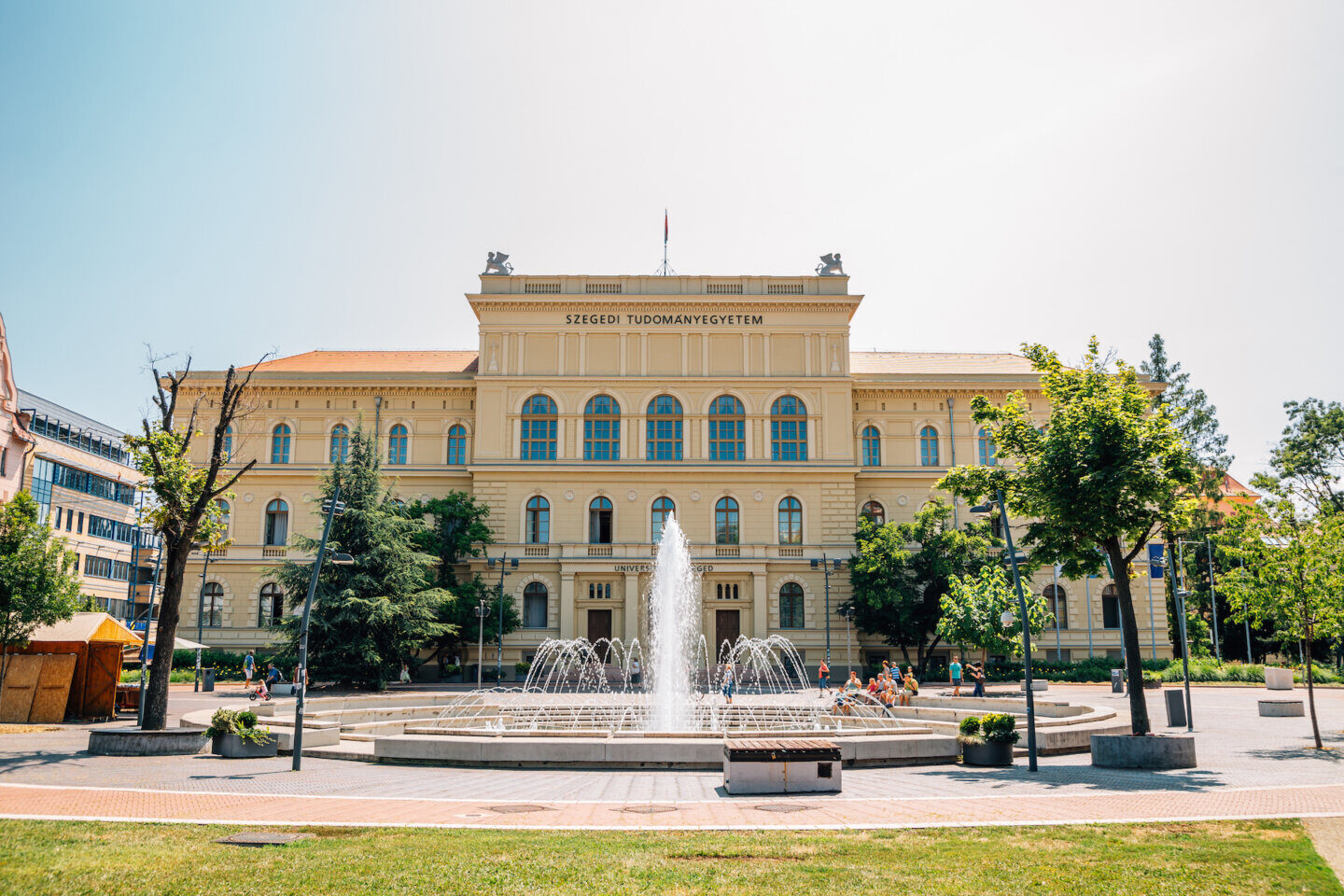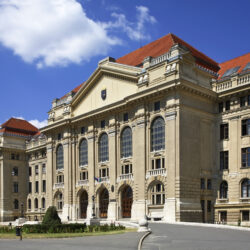UNIVERSITIES
Study MBBS in Hungary -futureMBBS
Hungary has emerged as a preferred destination for medical education, attracting students globally including Indian students (those who wish to study MBBS abroad) with its world-class infrastructure, affordable tuition, and internationally recognized medical degrees. Here's an in-depth look at what MBBS in Hungary offers for medical studies.
Are you interested in studying medicine in Hungary?
We would be happy to advise you free of charge about your options for studying medicine in Hungary.
Universities where you can study medicine in Hungary:
Why study MBBS in Hungary?


Together for success - futureMBBS and studying medicine abroad
Do you want to study medicine abroad and are looking for the most suitable university for you and don't really know where to start looking for the right country and a good university? futuredoctor is happy to support you!
Besides the Student advisory service In addition to selecting the university and accompanying you to the desired on-site appointments, futureMBBS also offers support during the application process and preparation for possible aptitude tests, as well as orientation at the place of study - including the search for accommodation! Get your application quickly and easily free info pack!
Quality education in accredited institutions
Hungarian universities are renowned for their rigorous standards and comprehensive curriculum. Institutions like Semmelweis University, University of Pécs, and University of Szeged are not only top medical universities in Hungary but also recognized globally. These universities are accredited by prestigious medical bodies including the World Health Organization (WHO) and the European Union's medical councils, ensuring that the degrees obtained are respected and accepted worldwide. This global acknowledgment empowers graduates specially Indian students to practice in various parts of the world, providing a truly international career.
MBBS in Hungary medical programs are tailored to integrate basic medical science with advanced clinical training, supplemented by state-of-the-art research facilities. This combination ensures that Indian students are not just recipients of theoretical knowledge but also get to hone their practical skills through extensive clinical practice and internships.
Affordable tuition fee
One of the significant advantages of studying MBBS in Hungary is the cost-effectiveness of its programs. Compared to the tuition fee in the US or UK, Hungary medical universities offer a more affordable option, with annual fees generally ranging from approximately INR 4,80,000 to INR 12,00,000. This affordability provides relief to many aspiring medical students who seek quality education without the burden of excessive loans.
Moreover, Hungary offers several scholarships and financial aids available to international students, which can further reduce the cost of education. These financial aids cover not only tuition fees but also contribute towards living expenses, making the financial aspect of studying abroad much more manageable.
Cultural diversity and rich history
Hungary, located in the heart of Europe, offers a unique blend of Eastern and Western cultures. It is known for its beautiful landscapes, rich history, and vibrant culture. Students studying in Hungary get the opportunity to explore this beautiful country and experience its diverse traditions. This cultural immersion is considered an integral part of the educational experience, helping students develop a broader perspective, crucial for the practice of medicine in today’s globalized world.
No language barrier
While Hungarian is the national language, the universities offer medical courses entirely in English. This is a crucial factor that attracts international students who can receive a top-notch education without the barrier of having to learn a new language. Additionally, these programs are designed to cater to the needs of international students, with specific modules on medical English to ensure that non-native speakers are well-prepared for both the academic challenges and their future medical careers.
Best universities for MBBS in Hungary
In Hungary, the pursuit of an MBBS degree attracts many international students, especially from India, due to the high standards of education combined with affordable tuition fees. Among the best universities offering MBBS programs are:
Semmelweis University

Located in the vibrant city of Budapest, Semmelweis University is one of Hungary’s oldest and most prestigious medical schools. Known for its rigorous MBBS program, the university teaches in English to cater to international students. The courses are recognized globally, including by the National Medical Commission (NMC) of India, ensuring that graduates can pursue careers in various countries around the world. For Indian students, passing the NEET exam is a prerequisite for admission, aligning with the university’s high academic standards.
University of Pécs

This university stands out for its innovative teaching methodologies and robust research programs, making it an attractive option for students interested in combining practical skills with academic knowledge. The University of Pécs offers a variety of scholarships that make it financially appealing to international students. Its MBBS degree is well-recognized across major medical councils globally, facilitating graduates to practice medicine in numerous international jurisdictions.
University of Szeged

Known for its comprehensive approach to medical education, the University of Szeged emphasizes practical training in its curriculum. This prepares students effectively for the medical profession by allowing them to gain hands-on experience that is critical in the medical field. The university’s MBBS program is globally recognized, permitting its graduates to practice medicine in many countries, providing a wide array of career opportunities upon graduation.
University name | Location | Annual tuition fee (INR approx.) | Recognized by NMC (Yes/No) | NEET required (Yes/No) |
|---|---|---|---|---|
Semmelweis University | Budapest | 11,00,000 - 15,00,000 | Yes | Yes |
University of Pécs | Pécs | 10,00,000 - 14,00,000 | Yes | Yes |
University of Szeged | Szeged | 10,00,000 - 13,50,000 | Yes | Yes |
Debrecen University | Debrecen | 12,00,000 - 16,00,000 | Yes | Yes |
Szent István University | Budapest | 9,50,000 - 12,00,000 | No | Yes |
These universities not only offer quality medical education recognized by the World Health Organization and other prominent international medical councils but also provide a multicultural environment that enriches the student experience. The diverse student body allows for a broader exchange of ideas and learning techniques, which is beneficial in the diverse field of medicine. Living expenses in Hungary are reasonable compared to other European countries, adding another layer of attraction to studying MBBS in Hungary.
These institutions are equipped with modern facilities and offer various specializations such as orthopedics, neurology, and medical genetics, ensuring that students receive a well-rounded education in medicine. Additionally, the Hungarian government supports international students through various programs, making Hungary an increasingly popular destination for medical studies.
Course information
The MBBS curriculum in Hungary spans six years, incorporating five years of intensive theoretical studies and practical training, followed by a mandatory one-year internship. This program is structured to equip students with a robust foundation in medical sciences, enhancing their expertise with substantial hands-on clinical experience.
Eligibility criteria and admission process
To be eligible for MBBS in Hungary, candidates must meet the following major universities eligibility criteria:
Academic requirements: Applicants should have completed their 10+2 education with a focus on Physics, Chemistry, and Biology. A minimum gpa score is required. The minimum aggregate marks required are 50% for the general category and 40% for reserved categories.
NEET examination: All Indian students must clear the NEET (National Eligibility cum Entrance Test) as it is compulsory for those applying to study medicine abroad. The scores from this test are critical for the admission process.
Language proficiency: While proficiency in English is required, Hungarian universities generally do not mandate IELTS or TOEFL scores for admission into the MBBS program. This makes accessibility easier for students who are proficient in English but do not have these specific test scores.
Entrance examination: Many Hungarian medical universities conduct their entrance exams, testing knowledge in Biology, Chemistry, and sometimes Physics, to assess the suitability of candidates for the medical program.
The comprehensive curriculum and structured admission process ensure that only well-prepared and qualified students are admitted, maintaining the high educational standards Hungary is known for. This rigorous approach, combined with the practical training and internship, thoroughly prepares graduates to meet the demands of the medical profession, whether they choose to practice in Hungary, the European Union, or beyond.
Types of intakes
Hungarian medical universities generally offer two primary intakes for students wishing to enroll in MBBS courses—Fall and Spring. The Fall intake typically starts in September, aligning with the academic year in many countries, making it a popular choice for international students. The Spring intake begins in February, providing an alternative entry point which can be beneficial for students who need more preparation time or who have missed the Fall application deadline.
Intake period | Application deadline | Session start |
|---|---|---|
Fall | Typically in May | September |
Spring | Typically in November | February |
Scholarships
In terms of financial aid, Hungarian universities are proactive in offering scholarships to reduce the financial burden on international students. These scholarships can be merit-based, awarded to students who have demonstrated exceptional academic achievements, or need-based, for students who may require financial assistance.
Stipendium hungaricum scholarship program: One of the most notable scholarships, funded by the Hungarian government, which covers tuition fees, medical insurance, housing, and a monthly stipend for living expenses. This scholarship is open to international students from numerous countries, with the aim of promoting cultural understanding and academic exchange.
University specific scholarships: Universities like Semmelweis University and the University of Pécs offer various scholarships that may cover partial to full tuition fees, and sometimes include a monthly allowance. These scholarships are competitive and require excellent academic records and proficiency in English.
These scholarships and financial aids significantly ease the cost of studying and living in Hungary, making it an accessible option for many international students. Interested applicants are encouraged to check the specific eligibility criteria and application deadlines directly on the university websites or through their international offices.
Cost of living and study
Tuition fees
Tuition fees for MBBS programs in Hungary typically range from €6,000 to €15,000 per year (approximately ₹5,00,000 to ₹12,50,000). These fees can vary based on the university and the specific medical program.
Living expenses
In Hungary, the cost of living for MBBS students encompasses several key categories such as accommodation, food, travel, and miscellaneous expenses. Here's a breakdown of these costs:
Accommodation
Accommodation costs vary significantly depending on the city and type of housing. University dormitories are the most cost-effective option, generally ranging from €100 to €250 per month (approximately ₹8,300 to ₹20,800). Private rentals can be higher, especially in Budapest, where a one-bedroom apartment can cost anywhere from €300 to €500 per month (₹25,000 to ₹41,500).
Food
Students can expect to spend about €150 to €250 per month (approximately ₹12,500 to ₹20,800) on food. This includes groceries and occasional dining out. Hungarian cuisine is diverse and students can find affordable eating options both on and off campus.
Travel
Public transportation in Hungary is well-organized and affordable. Students can avail themselves of monthly passes that typically cost around €30 (about ₹2,500), which covers buses, trams, and metros.
Miscellaneous
Miscellaneous expenses, including entertainment, health insurance, and personal care, can amount to approximately €100 to €200 per month (₹8,300 to ₹16,600). Health insurance is mandatory for all students, which might cost around €30 to €50 per month (approximately ₹2,500 to ₹4,150).
Here’s a table summarizing the monthly costs:
Expense category | Cost in Euros | Cost in INR |
|---|---|---|
Accommodation | €100 - €500 | ₹8,300 - ₹41,500 |
Food | €150 - €250 | ₹12,500 - ₹20,800 |
Travel | €30 | ₹2,500 |
Miscellaneous | €100 - €200 | ₹8,300 - ₹16,600 |
These are estimated figures and actual expenses can vary. Students are encouraged to plan their budget keeping these categories in mind and considering personal spending habits and lifestyle choices.
MBBS jobs and salary in Hungary
After completing an MBBS in Hungary, graduates have the opportunity to either continue their careers in Hungary, other parts of the European Union, or return to their home countries. The rigorous training and quality of medical education in Hungary equips students well to compete in various healthcare settings globally.
Career opportunities
Graduates from Hungarian medical schools are well-prepared for various roles in the medical field due to the extensive practical and theoretical training they receive. In Hungary and across the European Union, salaries for medical professionals are quite competitive, reflecting the high demand for well-trained medical staff. Starting salaries for medical doctors in Hungary can vary significantly based on the region, the specific medical field, the type of healthcare facility, and the level of experience of the individual. On average, starting salaries can range from €1,500 to €3,000 per month.
Practicing medicine in Hungary and the EU
To practice medicine in Hungary or other EU countries, graduates must register with the local medical council and meet specific licensing requirements, which may include language proficiency tests and additional qualifying examinations.
Returning to India: NExT exam
For Indian students who return after studying MBBS abroad, passing the National Exit Test (NEXT) is mandatory to practice in India. The NEXT exam assesses the comprehensive medical knowledge and practical skills ensuring that the medical graduates meet the requisite standards to practice medicine in India. This exam serves as a unified licensing examination that also replaces the Foreign Medical Graduates Examination (FMGE).
Salary for MBBS graduates in Hungary
Here's an indicative salary table for MBBS graduates in Hungary, showcasing potential earnings:
Position | Average salary per month (€) | Equivalent in INR |
|---|---|---|
Junior doctor | €1,500 - €2,500 | ₹1,24,000 - ₹2,07,000 |
Experienced general practitioner | €3,000 - €5,000 | ₹2,48,000 - ₹4,13,000 |
Specialist | €4,000 - €7,000 | ₹3,31,000 - ₹5,79,000 |
These figures are indicative and can vary based on the aforementioned factors. Salaries in other European countries might be higher, reflecting the cost of living and healthcare funding in those regions.
This broad perspective on potential career paths and salary scales helps aspiring medical students to realistically plan their future after completing an MBBS in Hungary, ensuring they make informed decisions about their careers in medicine.
Country and people
Hungary, a country rich in history and culture, offers international students a vibrant environment to complement their academic pursuits. Located in Central Europe, it's a nation known not only for its architectural elegance and historical significance but also for its warm hospitality and robust cultural life. For medical students studying in Hungary, the country provides ample opportunities to explore and engage with a unique European culture.
Cultural richness and social life
Hungarian culture is deeply embedded in its music, festivals, and historical traditions. The country is famous for its classical music heritage and folk traditions, and students often find themselves immersed in a culture that values deep intellectual pursuits and artistic expression. Budapest, the capital city, is at the heart of Hungary’s cultural scene, hosting numerous music festivals, art shows, and cultural events throughout the year.
The cityscape is dotted with architectural marvels from different eras—from Roman ruins to modernist designs—making everyday travel through the city an educational tour in itself. Additionally, Hungary’s cafes, theaters, and museums are excellent places for students to gather, discuss their studies, and soak in local and international art.
Culinary delights
Hungarian cuisine is another facet of the country that students can explore. Known for its rich and hearty dishes like goulash, paprikash, and langos, the local cuisine reflects the agricultural bounty and historical influences of the region. Budapest and other cities offer a mix of traditional Hungarian restaurants and modern eateries, providing tastes that cater to a diverse palette and dietary needs.
Natural landscapes
For those who love the outdoors, Hungary’s landscapes provide a refreshing escape from academic life. From the rolling hills of the countryside to the serene banks of the Danube River, there are numerous hiking, biking, and camping opportunities. Lake Balaton, Central Europe’s largest lake, is a popular destination in the summer for swimming, fishing, and sailing.
Safety and quality of life
Hungary is known for its safe and student-friendly environment. The cost of living is reasonable compared to other parts of Europe, which alleviates some of the financial stress for international students. Public transportation is extensive and reliable, making it easy to explore both urban and rural areas. Moreover, Hungary’s central location in Europe makes it an excellent hub for students wishing to travel to other European countries during breaks or for academic pursuits.
Activities and places to visit
Here’s a table outlining popular activities and notable places to visit that enhance the student experience in Hungary:
Activity/Place | Description |
|---|---|
Thermal Baths in Budapest | Famous for relaxing and therapeutic hot springs, such as Széchenyi and Gellért Baths. |
Visiting the Buda Castle | A historic castle and palace complex of the Hungarian kings in Budapest. |
Exploring the Caves of Aggtelek | Touring the extensive cave system, a UNESCO World Heritage Site. |
Attending the Sziget Festival | One of Europe's largest music and cultural festivals held annually in Budapest. |
Wine Tasting in Tokaj | Sampling wines in the renowned Tokaj wine region, famous for its sweet Tokaji wine. |
Each of these activities provides a unique way to connect with Hungary’s rich cultural tapestry and beautiful landscapes, making the time spent studying MBBS in Hungary not just educationally rewarding but also personally enriching.
How to apply?
Applications are typically submitted directly to the chosen university through their official website, accompanied by required documents and proof of meeting the eligibility criteria.
Visa and health insurance
Non-EU students wishing to study MBBS in Hungary must secure a student visa and health insurance prior to their arrival. Obtaining a student visa involves providing proof of admission from a Hungarian university, evidence of financial means for the duration of the stay, and a valid passport. Health insurance is crucial as it ensures access to medical services without incurring high costs, safeguarding students’ health throughout their studies in Hungary. These requirements are essential for both legal compliance and personal well-being while studying abroad.
Language proficiency
While MBBS courses are offered in English, proficiency in Hungarian can be beneficial for personal interactions and understanding the local culture and community.
Documents required for MBBS in Hungary
Valid passport: Essential for international travel and visa application.
High school diploma and mark sheets: Proof of completing secondary education as per the standards required for university admission in Hungary.
Proof of english proficiency: Tests like TOEFL or IELTS are often recommended but not mandatory for all universities; however, demonstrating proficiency in English is crucial.
Medical certificate: A certificate confirming the applicant is free from contagious diseases and is fit to attend university.
Admission and visa application forms: Required for processing at Hungarian embassies.
Letter of motivation: Often needed to understand the student's academic goals and reasons for choosing a particular institution.
CV/Resume: Provides an overview of the student’s academic and professional background.
Academic reference letters: Typically two letters that provide an academic evaluation of the student.
Transcripts of records and diploma translations: Necessary where original documents are not in English or Hungarian.
Proof of financial means: To cover tuition and living expenses during the student's stay.
Conclusion
Choosing to pursue an MBBS in Hungary not only opens doors to high-quality medical education but also immerses students in a culturally rich and academically rigorous environment. Hungarian medical universities like Semmelweis University, University of Pécs, and University of Szeged provide world-class medical training that is recognized globally. The relatively low tuition fees and living costs, combined with the opportunity to study in English, make Hungary an appealing option for aspiring medical students from all over the world.
For those looking to navigate the complexities of applying and preparing for an MBBS in Hungary, futureMBBS offers comprehensive resources and support to ensure a smooth academic journey. From detailed guides on admission processes to personalized advice on choosing the right university, futureMBBS is your dedicated partner in fulfilling your medical education goals abroad, so book a free consultation with us now!
STARTING SHOT
What are you waiting for? 🎉
Order your information package now, find out about studying medicine abroad and get started as a medical student!
FAQs about studying medicine in Hungary
How long does it take to study medicine in Hungary?
Medical studies in Hungary last 6 years in human medicine and 5 years in dentistry and are divided into 12 and 10 semesters respectively.
Is a medical degree from Hungary recognised in Germany or Austria?
All Universities where you can apply via futureMBBS are available within the Recognised throughout the EU. Accordingly, you can work as a doctor in Germany, Austria or Switzerland after graduating in Hungary.
Is NEET required for studying MBBS in Hungary?
Yes, for Indian students, NEET is necessary to apply for MBBS in Hungarian universities.
Are scholarships available for MBBS studies in Hungary?
Yes, several scholarships are available for international students based on merit and financial need.
Can you study medicine in English in Hungary?
Yes, there are opportunities to study medicine in German in Hungary. Hungarian universities, such as the Semmelweis University and the University of Pécs, offer medical degree programmes in English. This can be an attractive option for students from English-speaking countries.
At which universities can I study medicine with futureMBBS in Hungary?
futurembbs works closely with renowned medical universities in Hungary, including the Semmelweis University Budapest and the Medical University of Pécs. These universities offer English-language degree programmes in medicine and are known for their high-quality education.
How can futurembbs help me with my medical studies in Hungary?
futureMBBS offers comprehensive support throughout the entire process - from application and preparation to relocation, start of studies and beyond. Here you will find an overview of our entire range.
How large are the learning groups at the Hungarian medical universities?
The exact size of the learning groups may vary depending on the university and the course. In general, however, Hungarian medical universities emphasise small learning groups to allow for individual attention and an interactive learning environment.
How much does it cost to study medicine in Hungary?
There are tuition fees at Hungarian universities, which have to be paid annually or per semester. The fees currently range from 6,83,917 INR (€7,500) per semester to 8,44,455 INR (€9,260) per semester. You can find more information about the tuition fees on the respective university page here: Budapest and Pecs.
An overview of the costs involved in studying abroad (living costs, books, leisure, accommodation, etc.) as well as an overview of the tuition fees of all our universities. you can find here.
What is the cost of living in Hungary?
The cost of living in Hungary is moderate compared to many other European countries. However, the exact cost of living can vary depending on the location. Overall, the cost of accommodation, food and leisure activities in Hungary is affordable.
How do I apply to study medicine in Hungary?
To apply to study medicine in Hungary, simply fill out our online application form. We will then inform you about all further steps of your application and start the application process at the university of your choice. Click here to place your order.
What happens if I run into problems during my medical studies in Hungary?
futurembbs is here to help you. Our team is here to help you solve problems, whether they are academic or related to your life abroad. We offer support in overcoming challenges, from finding accommodation to professional issues and any other difficulties during your medical studies abroad.
Summary
Studying medicine in Hungary offers aspiring doctors a first-class medical education, international recognition and a diverse cultural experience. The renowned medical universities in Hungary offer a first-class education in an inspiring environment. Studying medicine in Hungary opens doors to a successful and fulfilling career in healthcare, no matter where in the world you choose to settle.
Starting your medical studies in Hungary is an exciting step on the way to your career as a doctor. At futureMBBS, we are here to help you navigate this journey with confidence and clarity. Whether you need support with your application, help preparing for the move or advice on starting university, we are here to help. With us by your side, you can enjoy your medical studies in Hungary to the fullest and be sure that you are on the best path to success.
Are you ready to realise your dream of studying medicine in Hungary? Contact us today and start your journey with futurembbs. We look forward to accompanying you on your journey and working with you to realise your dream of a career in medicine.
29 countries for your medical studies
Netherlands
Groningen, Maastricht, Amsterdam, Leiden, Utrecht, Rotterdam
Switzerland
Basel, Fribourg, Bern, Geneva, Zurich, Neuchâtel, Lausanne






























